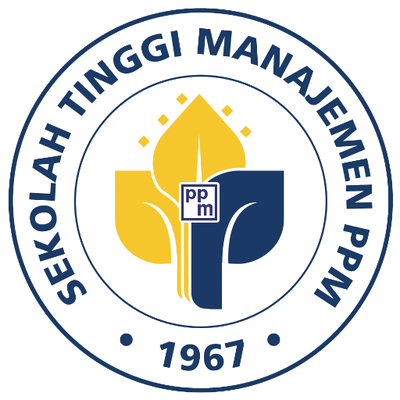Peran Moderasi Work Spirituality pada Hubungan antara Servant Leadership dan Decision to Stay Tenaga Pengajar pada Lembaga Pendidikan di Surabaya
Abstract
Keywords
Full Text:
PDF (Bahasa Indonesia)References
Dileep Kumar, M., & Govindarajo, N. S. (2014). Instrument Development “Intention to Stay Instrument†(ISI). Asian Social Science, 10(12), 149–169. https://doi.org/10.5539/ass.v10n12p149
Elison, K. K., & Purba, S. D. (2021). Variabel Anteseden Intention to Stay Pekerja Milenial dengan Kerja Remote di Jakarta Sekitarnya. Jurnal Aplikasi Bisnis Dan Manajemen (JABM), 7(3), 703. https://doi.org/10.17358/jabm.7.3.703
Galea, M. (2014). Assessing the Incremental Validity of Spirituality in Predicting Nurses’ Burnout. Archive for the Psychology of Religion, 36(1), 118–136. https://doi.org/10.1163/15736121-12341276
Ghorbanifar, M., & Azma, F. (2014). Workplace Spirituality and Organizational Citizenship Behavior: Evidence from Banking Industry. Management Science Letters, 4(8), 1685–1692. https://doi.org/10.5267/j.msl.2014.7.016
Gui, C., Zhang, P., Zou, R., & Ouyang, X. (2021). Servant Leadership in Hospitality: A Meta-Analytic Review. Journal of Hospitality Marketing & Management, 30(4), 438–458. https://doi.org/10.1080/19368623.2021.1852641
Hair, J. F., Hult, G. T. M., Ringle, C., & Sarstedt, M. (2016). A Primer on Partial Least Squares Structural Equation Modeling (PLS-SEM). SAGE Publications. https://books.google.co.id/books?id=JDWmCwAAQBAJ
Jang, J., & Kandampully, J. (2017). Reducing Employee Turnover Intention Through Servant Leadership in the Restaurant Context: A Mediation Study of Affective Organizational Commitment. International Journal of Hospitality & Tourism Administration, 1–17. https://doi.org/10.1080/15256480.2017.1305310
Periyanto. (2017). Analisis Kebijakan Standar Pendidik dan Tenaga Pendidik. Prosiding Seminar Nasional Pendidikan, 2(1), 379–383.
Pranoto, T. K. (2019). Pengaruh Servant Leadership terhadap Kinerja Karyawan di PT. Tata Mulia Nusantara Indah dengan Persepsi Budaya Organisasional sebagai Mediasi. Agora, 7(1). https://publication.petra.ac.id/index.php/manajemen-bisnis/article/view/8192
Rupert, P. A., Miller, A. O., & Dorociak, K. E. (2015). Preventing Burnout: What Does the Research Tell Us?. Professional Psychology: Research and Practice, 46(3), 168-174. https://doi.org/10.1037/a0039297
Sapengga, S. E. (2016). Pengaruh Servant Leadership Terhadap Kinerja Karyawan pada PT. Daun Kencana Sakti Mojokerto. Agora, 4(1), 645–650. https://publication.petra.ac.id/index.php/manajemen-bisnis/article/view/6706
Scherer, L. L., Allen, J. A., & Harp, E. R. (2016). Grin and Bear It: An Examination of Volunteers’ Fit with their Organization, Burnout and Spirituality. Burnout Research, 3(1), 1–10. https://doi.org/10.1016/j.burn.2015.10.003
Susanto, H. (2012). Faktor-Faktor yang Mempengaruhi Kinerja Guru Sekolah Menengah Kejuruan. Jurnal Pendidikan Vokasi, 2(2). https://doi.org/10.21831/jpv.v2i2.1028
Widyawati, F., Djastuti, I., & Rahardja, E. (2013). Pengaruh Keadilan Distributif dan Career Plateau terhadap Kepuasan Kerja serta Dampaknya pada Intention to Stay (Studi pada PT Sinar Sosro Ungaran). Thesis. UNDIP: Fakultas Ekonomika dan Bisnis. https://repofeb.undip.ac.id/8503/
DOI: https://doi.org/10.34149/jmbr.v19i2.277
Indexing
JMBR Editorial Office: PPM School of Management, Jl. Menteng Raya 9-19 Jakarta 10340 Phone: 021-2300313 ext 2354

License
JMBR is using CC BY License
This work is licensed under a Creative Commons Attribution 4.0 International License.


















